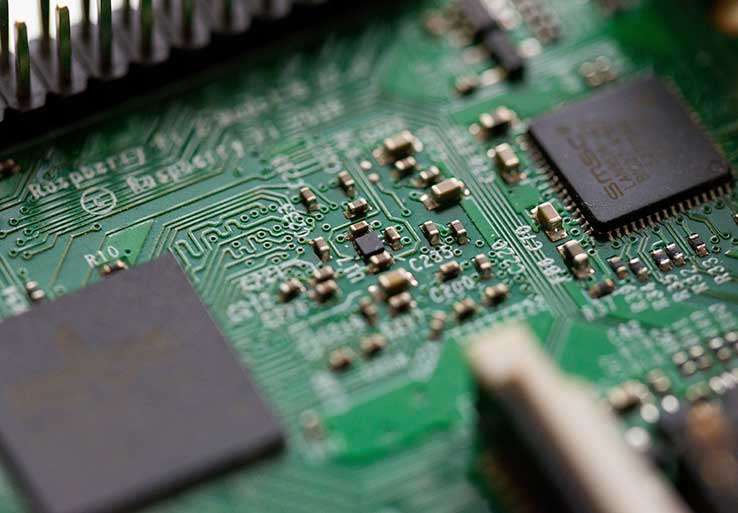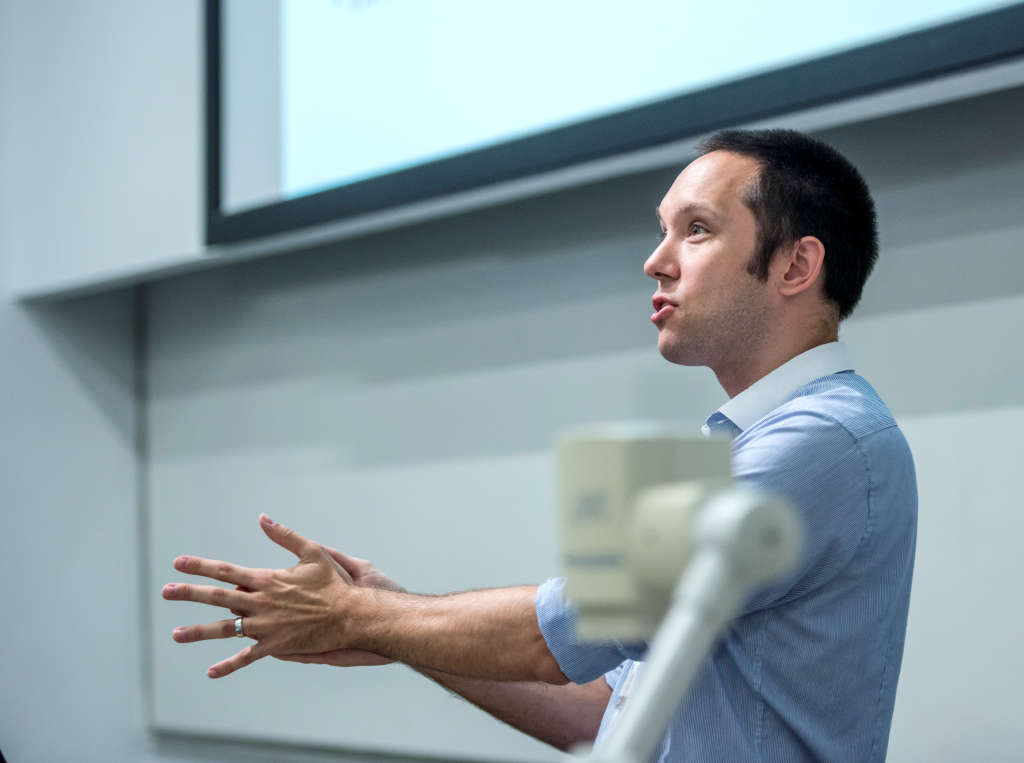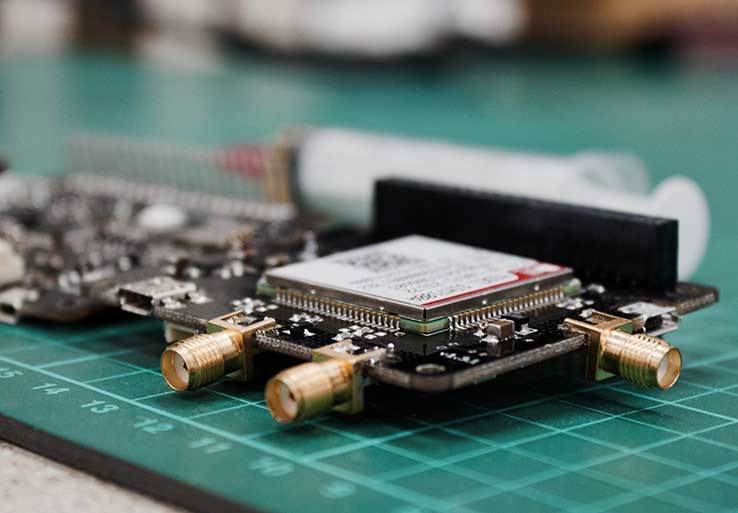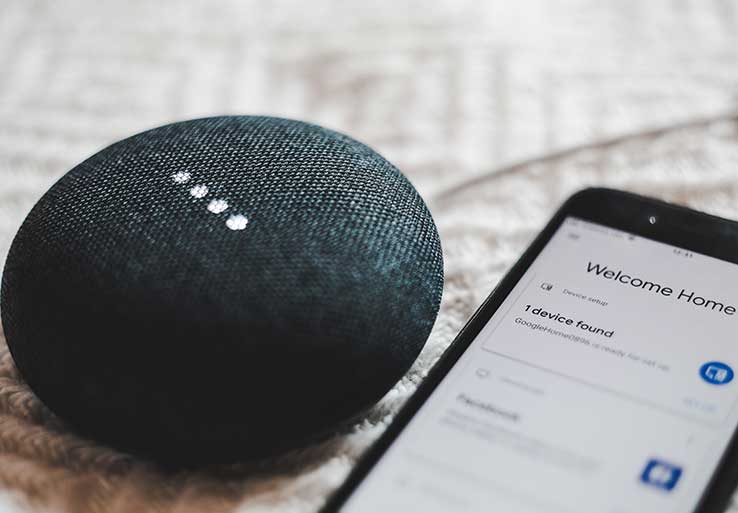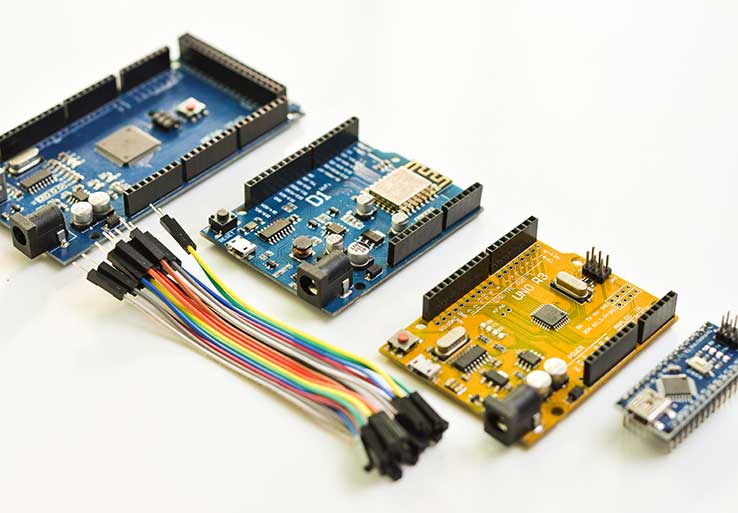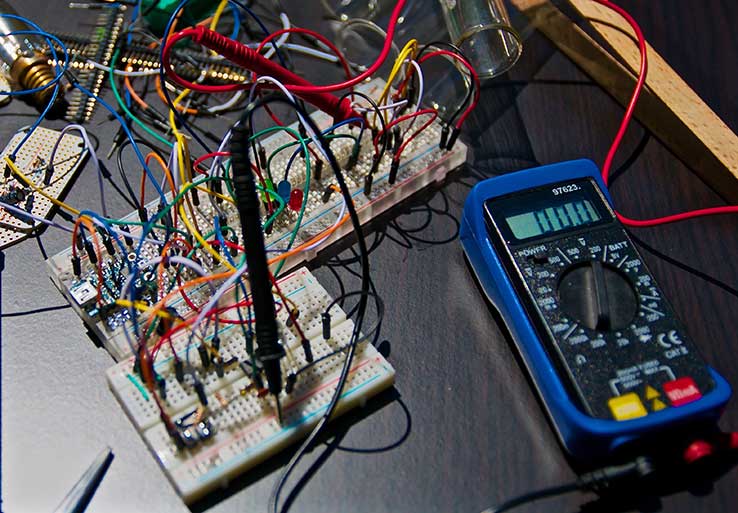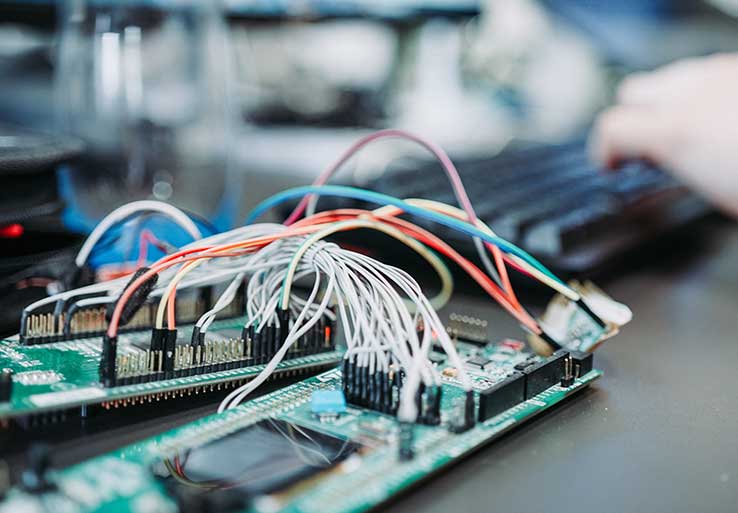| 2024-25 | PIII | Enabling Intermittent Inference on Accelerated Edge Platform |
| 2024-25 | PIII | Miniaturising and Optimising the Accuracy of Self-powered Non-intrusive Presence Detection Systems |
| 2024-25 | PIII | Smart LED Light Strands: Pixel Mapping through Computer Vision |
| 2024-25 | PIII | Measuring and Predicting Time in Normally-Off Embedded Systems |
| 2024-25 | PIII | Classifying Medicine Consumption via an Intelligent Pressure Pad |
| 2023-24 | PIII | Posture Detection and Feedback Using a Multimodal Large Language Model on Mobile Devices |
| 2023-24 | PIII | Using Radio Frequency Transceiver to Aid Education in Embedded Networked Systems and Prototype an Energy-Efficient Plant Watering System |
| 2023-24 | PIII | An Embedded Eye Tracking Device |
| 2023-24 | PIII | Efficient and distributed inference of transformer-based models |
| 2023-24 | PIII | Triple-mode self-powered systems to enable uninterrupted monitoring for digital product passports |
| 2022-23 | PIII | Investigation into Networking Intermittently Powered Devices |
| 2022-23 | PIII | Smart IoT Key Caps for Door Lock State Detection |
| 2022-23 | PIII | Optimisation of solar energy harvesting in partially shaded conditions |
| 2022-23 | PIII | Implementation of an FPGA-based NPU for Hardware Accelerating CNN Inference |
| 2022-23 | PIII | Embedded Hardware to Simulate Physical Touch within Virtual Reality |
| 2021-22 | PIII | Wearable System Development to Monitor Yoga Posture |
| 2021-22 | PIII | IoT Smart Tags For Tracking PC Component Wear To Support A Circular Economy |
| 2021-22 | PIII | Classifying the State of Door Lock Mechanisms for IoT Smart Home Systems |
| 2021-22 | PIII | Implementation of Multi-Layered Perceptron for Computer Vision on Edge Computing |
| 2021-22 | PIII | A Self-Powered Device which Promotes Fitness and Wellbeing |
| 2021-22 | PIII | An Investigation Regarding the Leveraging of Class-Granular Classifications with Dynamic DNNs |
| 2020-21 | PIII | Dynamic Hardware-Aware Transformers (HAT) on Resource-Limited Embedded Hardware |
| 2020-21 | PIII | Persistent timekeeping in intermittently-powered embedded devices |
| 2020-21 | PIII | Evaluating the performance of Dynamic Deep Neural Networks on an intermittently powered device |
| 2020-21 | PIII | A Cost Effective Wearable device for Safety awareness during the Covid-19 Pandemic |
| 2019-20 | PIII | A Self-Powered Wearable Activity Monitor |
| 2019-20 | PIII | Exploring data quality gathered on an intermittently powered device |
| 2019-20 | PIII | Wearable swimming watch for advanced swim tracking |
| 2019-20 | PIII | A Miniature, Multi-Purpose, IoT device for Smart Home |
| 2019-20 | PIII | Implementation of Dynamic DNNs on Neural Processing Unit |
| 2019-20 | PIII | A self-powered battery-free IoT device with an e-Ink display |
| 2019-20 | PIII | Exploring the trade-off performance metrics in DNN detection |
| 2018-19 | PIII | LoRaWAN Networking in Battery-free Energy Harvesting Computing Systems |
| 2018-19 | PIII | Learning and recommending efficient driver styles to improve fuel efficiency. |
| 2018-19 | PIII | Vision-based Traffic Counting on an Embedded Device |
| 2018-19 | PIII | Indoor Non-Intrusive Cough Detection Using Machine Learning |
| 2018-19 | PIII | Networking between Transient Computing Devices using Simultaneous Wireless Information and Power Transfer |
| 2017-18 | PIII | Traffic Counting Using Computer Vision |
| 2017-18 | PIII | Investigating Distributed Machine Learning for Energy Harvesting Prediction in IoT networks |
| 2017-18 | PIII | Mesh Networking in Transiently Powered Systems |
| 2017-18 | PIII | Extracting Passing Patterns in Football in Order to Predict Effectivity |
| 2017-18 | PIII | SenseCycle: A Battery-less Bluetooth Low Energy Bicycle Sensor Hub for Wind and Inclination Measurement |
| 2016-17 | PIII | Investigating ARM mbed Support for Transient Computing Systems Powered by Energy-Harvesting |
| 2016-17 | PIII | Runtime Absolute Power Estimation and Breakdown for Mobile Devices |
| 2016-17 | PIII | Hardware Acceleration for typical Internet of Things Devices |
| 2016-17 | PIII | Secure, Mobile, Wireless Network for FES Rehabilitation |
| 2015-16 | PIII | Energy Efficient Object Detection and Tracking through Adaptive Operation on Heterogeneous Multi-core Systems |
| 2015-16 | PIII | Wearable Literacy Teaching Aid for the Visually Impaired |
| 2015-16 | PIII | Demonstrating the operation and comparing the performance of a multicore embedded systems |
| 2015-16 | PIII | Power Neutral Energy Harvesting Management for Multicore Embedded Systems |
| 2015-16 | PIII | Implementation and Evaluation of Hardware Acceleration for Stereo Matching Algorithms |
| 2014-15 | PIII | Learning Heating Dynamics for Efficient and Effective Home Heating |
| 2014-15 | PIII | Design, construction and testing of a power and energy meter with auto-ranging and data-logging functionality |
| 2014-15 | PIII | Utilising Android OS/Hardware Effectively To Create a Digital Signage Solution |
| 2013-14 | PIII | A mobile application to assist sufferers of memory loss |
| 2013-14 | PIII | High CRI Tunable White LED Light Source |
| 2013-14 | PIII | Realisation and Evaluation of Energy-Aware Information Management Approaches for Wireless Sensor Networks |
| 2012-13 | PIII | Predictive Control of Household Appliances Using Weather Forecasts to Effectively Utilise Wind Turbine Energy |
| 2012-13 | PIII | Smart Web-connected Thermostat Based on Personal Location Identification to Reduce Domestic Energy Wastage |
| 2012-13 | PIII | Energy Monitoring for Wireless Sensor Network Nodes |
| 2012-13 | PIII | Design and Evaluation of Middleware For Smart Home Systems Using Web Based Technologies |
| 2011-12 | PIII | Wearable EMG biofeedback device |
| 2011-12 | PIII | Exploiting Supercapacitor Leakage Behaviour in Energy Harvesting-Wireless Sensor Nodes |
| 2011-12 | PIII | Non-Invasive Distributed Monitoring of Water Usage in the Home |
| 2010-11 | PIII | Sign Language Recognition Using DG Tech glove |
| 2010-11 | PIII | Integration of sensor arrays into a chair for investigation into ergonomics and posture correction |
| 2010-11 | PIII | A Wearable Plantar Pressure Sensing System to Aid the Transition to Fore-Foot Running |
| 2009-10 | PIII | Feasibility study for using online weather reports in a prediction system for micro-generators |
| 2009-10 | PIII | Improving energy saving of space heating systems using occupancy detection and machine learning.
|
| 2009-10 | PIII | A non-invasive method of tendon stress measurement using ultrasound |
| 2023-24 | MSc | Efficient and Distributed Inference of Transformer-Based Models |
| 2023-24 | MSc | Ultra Low-Power Circuits for Intermittent IoT Systems |
| 2023-24 | MSc | A Sitting Posture Monitoring System with Multiple IMUs |
| 2022-23 | MSc | Battery Management based on the prediction of plug-in and pull-out time |
| 2022-23 | MSc | Microcontroller based Monitoring Device to promote Circular Economy |
| 2022-23 | MSc | Smart Embedded System for Sustainable Buildings using Genetic Algorithm |
| 2022-23 | MSc | Deployment of Dynamic Deep Neural Networks on Tiny-scale SoC Devices |
| 2022-23 | MSc | Optimizing Low-power Microcontroller Firmware for Efficient and Scalable Machine Learning Applications |
| 2021-22 | MSc | An Intermittently Powered Activity Monitor |
| 2021-22 | MSc | Smart Door Lock Detection System |
| 2021-22 | MSc | Managing Daily Dietary Habits with IMU Based Wearable Monitoring |
| 2021-22 | MSc | A Smart Wearable Fitness Auxiliary Device |
| 2021-22 | MSc | Predicting the Time of Day from Environmental Data |
| 2021-22 | MSc | Smart Road Studs |
| 2020-21 | MSc | Improving Neural Architecture Search for Once-For-All Networks |
| 2020-21 | MSc | Dynamic DNN Inference |
| 2020-21 | MSc | Intelligent Resource Management for Embedded Systems |
| 2020-21 | MSc | Utilising Dynamic DNNs on Neural Processing Units |
| 2020-21 | MSc | Utilising Dynamic DNNs in Modern Inference Engines |
| 2019-20 | MSc | Investigating on-chip hardware support for intermittent computing |
| 2019-20 | MSc | Lambda distillation for top-N recommendation |
| 2019-20 | MSc | Runtime Deep Neural Network Deployment on Mobile Devices |
| 2019-20 | MSc | Accelerating BERTs Computation via model compression and dynamic network |
| 2019-20 | MSc | Feature-Oriented Local Customisation via Residual-Based Unsupervised Debiasing |
| 2019-20 | MSc | IoT Condition Monitoring System for Electrical Appliances |
| 2018-19 | MSc | Accelerating Computation for Machine Learning Workloads |
| 2018-19 | MSc | Solar Prediction Solve by Artificial Intelligent with Internet of Things |
| 2018-19 | MSc | Distributed Deep Learning for the Internet of Things |
| 2018-19 | MSc | Hardware design and implementation of a Deep Neural network system to count coughs |
| 2018-19 | MSc | Power Consumption and Machine Learning-based Ransomware Detection in the Internet of Things |
| 2017-18 | MSc | Intermittent Computing on High Performance Out-of-Order Processing System |
| 2017-18 | MSc | Wake-up Radios for Networking in IoT Systems |
| 2016-17 | MSc | FPGA implementation of lightweight cipher for Internet of Things |
| 2016-17 | MSc | A Reactive Memory Based Dynamic Power and Temperature Management Algorithm with Advanced Temperature Prediction Error Correction for Heterogeneous Architectures |
| 2016-17 | MSc | The High-efficiency Method for Implementation of Non-volatile Processor on FPGA |
| 2016-17 | MSc | Applications of Energy-Driven Computing: A Transiently-Powered Wireless Cycle Computer |
| 2015-16 | MSc | Efficient image-based road surface detection on an FPGA SoC |
| 2015-16 | MSc | Hardware Control of DVFS for Minimization |
| 2015-16 | MSc | Runtime Current/Power Measurement of Low-power Embedded to IoT Devices |
| 2015-16 | MSc | FPGA implementation of Road Surface Detection |
| 2014-15 | MSc | Implementing NoC-based Multi-processor Systems on FPGA |
| 2014-15 | MSc | Design and Implementation of an FPGA-based Artificial Cerebellum CMAC Controller |
| 2013-14 | MSc | ManyScale : Effect of Core-Scaling on Energy Efficiency in Many-Core Applications |
| 2013-14 | MSc | FPGA-Based Video Decoder with Intelligent Runtime Energy Management |
| 2013-14 | MSc | Analyse and Implement of Solar Harvested-Energy Prediction Algorithm |
| 2013-14 | MSc | PV cell modelling and research of the influence of operating conditions on electrical characteristic of PV cells |
| 2012-13 | MSc | Vehicles detection by low-power and low-cost sensor |
| 2012-13 | MSc | An Investigation into the Energy/Latency trade-off in Cooperative Wireless Sensor Network |
| 2011-12 | MSc | Adaptive Power Management using Machine Learning |
| 2011-12 | MSc | Testing for Human body energy harvesting |
| 2011-12 | MSc | Explore power constraint face detection system based on Viola and Jones (Hardware) |
| 2011-12 | MSc | Accelerometer-based activity recognition |
| 2011-12 | MSc | Validating Routing Approaches in Information- and Energy-Managed Wireless Sensor Networks |
| 2011-12 | MSc | Run-Time Performance Counting in a Synthesised Multi-Core Processor |
| 2011-12 | MSc | Efficient solar-powered/USB battery charging for wearable devices |
| 2010-11 | MSc | Investigating the effect on energy consumption of instruction set reductions in the OpenMSP430 |
| 2010-11 | MSc | Modelling the Energy Consumption of Microcontrollers and Sensor Nodes |
| 2010-11 | MSc | Measuring the Power Consumption of Sensor Nodes In- Situ : Off Node Profiling |
| 2010-11 | MSc | Measuring the Power Consumption of Sensor Nodes In-Situ: On-Node Profiling |
| 2010-11 | MSc | A Wireless Sensor Network to Monitor Vibrations with In-Network Analysis |
| 2010-11 | MSc | Intelligent Energy Harvester |
| 2010-11 | MSc | Evaluating the energy available from on-body cells |
| 2010-11 | MSc | Solar Cell Characterisation, Modelling and Validation |
| 2010-11 | MSc | Power Analysis And Dynamic Power Reduction Techniques Implementation On The MSP430 |
| 2009-10 | MSc | A microcontroller based data logger for environmental energy surveying |
| 2009-10 | MSc | Modelling, Characterisation and Validation of Supercapacitors in Wireless Sensing Applications |
| 2008-09 | MSc | Design and implementation of a miniaturised wireless sensor node for orientation monitoring |
| 2013-14 | IRR | Energy Harvesting Wireless Sensor Networks: A Paradigm Shift |
| 2013-14 | IRR | Face detection on embedded devices |
| 2012-13 | IRR | Power Management Techniques for Multi/Many-Core Processor Architectures |
| 2012-13 | IRR | A Review of Electromyography Research for Wearable Muscle-Computer Interfaces |
| 2011-12 | IRR | Human-powered Inertial Energy Harvesting |
| 2011-12 | IRR | A Review of Energy Modelling in Wireless Sensor Network Simulation |
| 2011-12 | IRR | Electrocutaneous Stimulation: Principles, Applications and Challenges |
| 2011-12 | IRR | Investigation into the power reduction methods of processors |
| 2010-11 | IRR | The Effect of Supercapacitor Models in Wireless Sensor Networks |
| 2010-11 | IRR | Use of IEEE802.15.4a Ultra wide-band in Ranging |
| 2009-10 | IRR | Providing Realistic Tactile Sensations to the Human Fingertips |
| 2008-09 | IRR | Reducing Domestic Energy Consumption by Application of Wireless Sensor Networks |
| 2008-09 | IRR | unknown |
| 2008-09 | IRR | A Review of Wearable and Implantable Heart Sensors |
| 2023-24 | GDP | Formation and Swarm Behaviour of ROVs |
| 2022-23 | GDP | Cloud-based, real-time energy monitoring for buildings |
| 2021-22 | GDP | Biodiversity Monitoring with Ultra Low Power Microcontrollers |
| 2020-21 | GDP | A cross-platform signal generator/oscilloscope/logic analyser app |
| 2018-19 | GDP | Footfall Monitoring End-to-End IoT Solution |
| 2017-18 | GDP | GPS unit for Integrated Secondary Flight Display |
| 2015-16 | GDP | Ultra-Low-Power Exercise Monitoring Applications for Sub-Threshold Micro-Controllers |
| 2015-16 | GDP | An Autonomous Vehicle Demonstrator using Computer Vision |
| 2014-15 | GDP | Low-cost Acoustic Vehicle Detection |
| 2013-14 | GDP | Low-Power Distributed Vehicle Detection and Contextualisation |
| 2010-11 | GDP | Touchy Feely: A Wearable Hand-Rehabilitation |
| 2009-10 | GDP | Battery free torque sensor |
